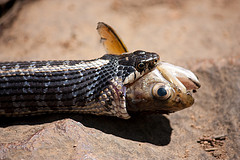![]() Lancet Respiratory Medicine has issued an expression of concern for a meta-analysis on tracheostomy in the intensive care unit that they published earlier this year.
Lancet Respiratory Medicine has issued an expression of concern for a meta-analysis on tracheostomy in the intensive care unit that they published earlier this year.
The paper, “Effect of early versus late or no tracheostomy on mortality of critically ill patients receiving mechanical ventilation: a systematic review and meta-analysis“, came from a group at Harvard, Weill Cornell and the University of Athens. The authors purported to find that: Continue reading Lancet journal puts ICU paper on watch after authors acknowledge potentially fatal flaw







